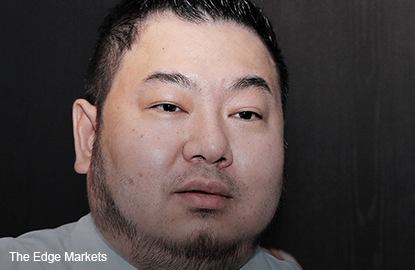
This article first appeared in The Edge Financial Daily, on November 17, 2015.
KUALA LUMPUR: Parkson Holdings Bhd, which reported a 69% year-on-year net profit decline for the financial year ended June 30, 2015 (FY15) due to lower sales performance in its Malaysia, China, Vietnam and Myanmar operations, expects consumer sentiment to stay weak, but is banking on its ongoing rebranding campaign to revive its retailing business across the region.
In Malaysia, Parkson Retail Asia Ltd (Parkson Asia) (valuation: 1.2; fundamental: 0.8) non-executive director Datuk Magic Lee sees the depreciating ringgit and the implementation of the goods and services tax (GST) in April continuing to drag consumer sentiments down.
“Yet, we have to stay active to do more things and get ready when the market recovers,” he told a media briefing on its business strategy, future direction and brands in the fashion, cosmetics and beauty, food and beverage, corporate gifts and edutainment sectors yesterday.
Lee said the group has ploughed RM100 million into its rebranding campaign over the last one and a half years. The group now has 35 brands, and is looking to grow the number to more than 100, he added.
“We hope that with this (rebranding campaign), we will see the group’s sales grow by at least 50%, compared with what we have achieved in FY15,” he said.
Parkson Holdings saw its revenue for FY15 grow 5.2% to RM3.74 billion, from RM3.55 billion in FY14.
Lee also said the group is targeting its new high street brands from South Korea — SPAO, MIXXO and WHO.A.U — to achieve first-year sales of RM60 million. The three new brands are debuting in Malaysia, as part of Parkson Group’s branding initiatives.
Lee noted the group plans to open up to four outlets in Malaysia, between three and five outlets in Indonesia, two in Myanmar and one in Cambodia next year.
Parkson Holdings executive director Vivien Cheng Hui Yen said the group plans to manage its own distribution channel to ensure consistent customer experience delivery in all of Parkson brands operated in shopping malls and stand-alone stores.
Vivien, 26, daughter of tycoon Tan Sri William Cheng who is Parkson Holdings chairman and managing director, was promoted to executive director of Parkson Asia in September.
“We wish to bring an integrated, unified and ultimate shopping experience to our customers and we are committed to delivering service excellence,” said Vivien.
“In order to stay ahead of the current competitive market in the retail industry, we believe it is necessary to innovate the business,” she added.
Meanwhile, Lee expects the group’s same store sales growth in China to remain in the negative for the financial year ending June 30, 2016 (FY16) on the back of generally weak discretionary spending and rising competition from online retailers such as Alibaba Group Holding Ltd.
Parkson China reported a negative same store sales growth of 6% for FY15. According to Lee, its operations in China contributed close to 75% to Parkson Holdings’ revenue.
Lee attributed the continued poor performance in China to the unfair competition between online and offline retail platforms, in which offline retail platforms are subject to higher taxes for branded products.
“We have plans to overcome the shortfalls, but these plans take time (and) the problem is Alibaba came too fast,” Lee said.
Nevertheless, to enhance its business in China, he indicated that the group will open a new concept shop in December via a joint venture.
On the recent retail shop closure and rental issues in China, Lee said closure of an outlet is a normal practice to stop its bleeding.
It was reported by China’s local press that one of the Parkson retail shops in Zhengzhou closed down on Sept 30 after operating for merely a year, making it the shortest-lived operation in Parkson China’s history.
As at June 30, the company operated 60 stores across 34 cities in China.
Parkson Holdings (valuation: 1.1; fundamental: 1.35) shares closed down 1.87% to RM1.05 yesterday, bringing a market capitalisation of RM1.15 billion. Year to date, the stock has fallen 52%, from RM2.20 at the beginning of this year.